Rebuilding Lives Through Expert Care & Rehabilitation
Proudly Affiliated with Encompass Health
Add Your Heading Text Here
Serving Richmond
and Petersburg
RVA PMR is a physician-led practice based in Richmond, Virginia, specializing in Physiatry, Physical Medicine, and Rehabilitation. We are dedicated to helping patients recover and thrive after life-altering events such as strokes, spinal cord injuries, brain injuries, trauma, complex orthopedic conditions, amputations, and neurological disorders, among many others.
Our treatment plans are carefully tailored to each patient’s unique goals and medical needs, while also considering the support and involvement of their families. We believe in a collaborative, patient-centered approach that promotes lasting recovery and improved quality of life.
As a trusted partner of multiple Richmond area healthcare facilities, where we provide expert rehabilitation. Delivering consistent, compassionate care designed to help patients return to where they want to be: home.
Traumatic Brain Injury (TBI)
A traumatic brain injury is caused by a blow or jolt to the head that affects brain function. It can lead to cognitive, physical, and emotional changes depending on severity. Recovery often includes therapies targeting memory, balance, speech, and daily skills.
Learn MoreStroke
A stroke occurs when blood flow to part of the brain is interrupted or reduced, causing brain cells to die. This can result in sudden weakness, difficulty speaking, loss of coordination, or cognitive changes. Recovery often involves therapy to restore mobility, speech, and daily functioning.
Learn MorePolytrauma
Polytrauma refers to experiencing multiple traumatic injuries simultaneously, often involving both physical and neurological damage. These injuries are complex and may require coordinated, multidisciplinary care. Rehabilitation addresses physical recovery, cognitive function, and emotional support.
Learn MoreSpinal Cord Injury
Spinal cord injuries disrupt communication between the brain and the body, leading to partial or complete loss of movement and sensation below the level of injury. Causes may include trauma, surgery, or disease. Rehabilitation focuses on improving mobility, strength, and independence.
Learn MoreNeurological Conditions
Neurological conditions, such as multiple sclerosis, Parkinson’s disease, or ALS, affect the brain, spinal cord, or nerves, leading to changes in movement, speech, vision, or cognition. Rehabilitation focuses on managing symptoms, improving mobility and strength, and supporting independence.
Learn MoreSpasticity Management
Spasticity is a condition where muscles become stiff or tight due to damage to the brain or spinal cord, often seen after stroke, brain injury, or in conditions like multiple sclerosis. It can cause pain, limited movement, and difficulty with daily activities. Rehabilitation focuses on stretching, strengthening, and positioning, along with medication or other treatments to improve comfort, mobility, and function.
Learn MorePolyneuropathy
Polyneuropathy involves damage to multiple peripheral nerves, leading to numbness, weakness, pain, or coordination problems. It can be caused by diabetes, infections, or autoimmune conditions. Treatment focuses on symptom management and improving function.
Learn MoreCritical Illness Myopathy / ICU-Acquired Weakness
This condition results from prolonged stays in intensive care, leading to severe muscle weakness and reduced mobility. It often affects both limb and respiratory muscles, making recovery challenging. Rehabilitation focuses on early mobilization, strength rebuilding, and respiratory support.
Learn MoreAmputation
Amputation involves the removal of a limb or part of a limb due to trauma, disease, or surgical necessity. It affects balance, mobility, and daily functioning. Rehabilitation includes wound care, strengthening, prosthetic training, and emotional support.
Learn MoreOrthopedic Rehabilitation

Orthopedic rehabilitation restores strength, mobility, and function after injuries, surgeries, or conditions affecting bones, joints, muscles, and ligaments. Therapy focuses on pain reduction, improved movement, and a safe return to daily activities.
Learn MoreChronic Condition Management
Chronic condition management supports individuals living with long-term illnesses such as diabetes, heart disease, or COPD. Care focuses on controlling symptoms, preventing complications, and improving quality of life through therapy, education, and lifestyle strategies.
Learn MoreCardiac Conditions
Cardiac conditions, including heart attacks, heart failure, and surgeries like bypass or valve repair, can greatly impact strength and endurance. Recovery requires careful monitoring, exercise, and education. Cardiac rehabilitation helps rebuild heart health and prevent future events.
Learn MoreOncology (Cancer Rehabilitation)
Cancer and its treatments can cause fatigue, weakness, pain, and cognitive changes. Oncology rehabilitation helps manage side effects and supports recovery during or after treatment. Care is focused on improving strength, function, and overall well-being.
Learn MorePain Management
Pain management is an essential part of recovery, especially for those with chronic or post-surgical pain. It involves a combination of therapies, medications, and education to reduce discomfort and improve daily function. The goal is to restore quality of life and support long-term recovery.
Learn MorePulmonary Conditions
Chronic lung diseases like COPD or pulmonary fibrosis can make breathing and physical activity difficult. Pulmonary rehabilitation includes breathing exercises, strength training, and education to improve respiratory function and quality of life.
Learn MoreHip & Joint Replacement
Therapy begins soon after surgery to restore movement, build strength, and reduce stiffness. Patients practice walking, climbing stairs, and other functional tasks with the support of physical and occupational therapists, helping them safely transition back to daily life.
Learn MoreMedication Management
Medications are closely monitored to manage pain, prevent infection, and support healing. Nurses and physicians adjust dosages as needed, while educating patients on proper use to ensure a smooth and safe recovery.
Learn MoreActivities of Daily Living (ADLs)
Teams focus on helping patients regain independence with self-care tasks such as bathing, dressing, and eating. Therapists provide training, adaptive equipment, and techniques that allow patients to perform these activities more safely and confidently.
Learn MoreExperienced Physicians
State-of-the-Art Technology
Our board-certified physiatrists lead each patient’s care plan, ensuring medical oversight, consistency, and the highest standards of rehabilitation.
Personalized Care Plans
We tailor every treatment program to the individual—focusing on specific goals like improved mobility, communication, independence, or quality of life.
Interdisciplinary Team Approach
Our Team
Latest News and Events



What Our Patients Are Saying
